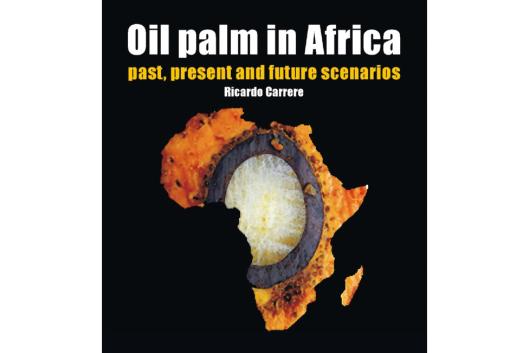Sólo disponible en inglés y francés.
Oil palm is a traditional native crop for West and Central African communities, who are used to either plant them on their lands or to collect fruits, leaves or sap from native palms to use them in their daily lives: from locally processing palm oil to be used in the household or sold in the local markets to producing palm wine. Oil palm is part of their culture.
However, in recent years things have started to change. Mainly driven by the international demand for palm oil –and more recently for agrofuels- African communities are facing the expansion of large scale oil palm plantations. Governments are opening the doors to corporations for planting vast areas of land with oil palm plantations. This trend is not only happening in West and Central African countries, but is even expanding to parts of Eastern Africa.
Large scale oil palm plantations are already causing serious environmental and social impacts in some countries, resulting in loss of community rights over their territories.
In August 2010, the World Rainforest Movement first published under this blog a series of draft articles for comments
The publication “Oil palm in Africa: past, present and future scenarios" contains a general introduction to the issue of oil palm in Africa, followed by specific information on the 25 countries analyzed under this research. The publication, updated in 2013, has been translated in full into English and French.
We have also produced an interactive map that sumarizes some of this information. The map is available here.
Nevertheless, under the blog we have left the final versions of articles by country in each country’s “official” language.
We hope that this work will serve for assisting communities already impacted by or targeted for oil palm plantations in defending their territories and livelihoods threatened by government-sponsored oil palm corporations.
Given that we are planning to update the book on a regular basis, we encourage the readers of the book and the blog to send us any new information that should be considered.
